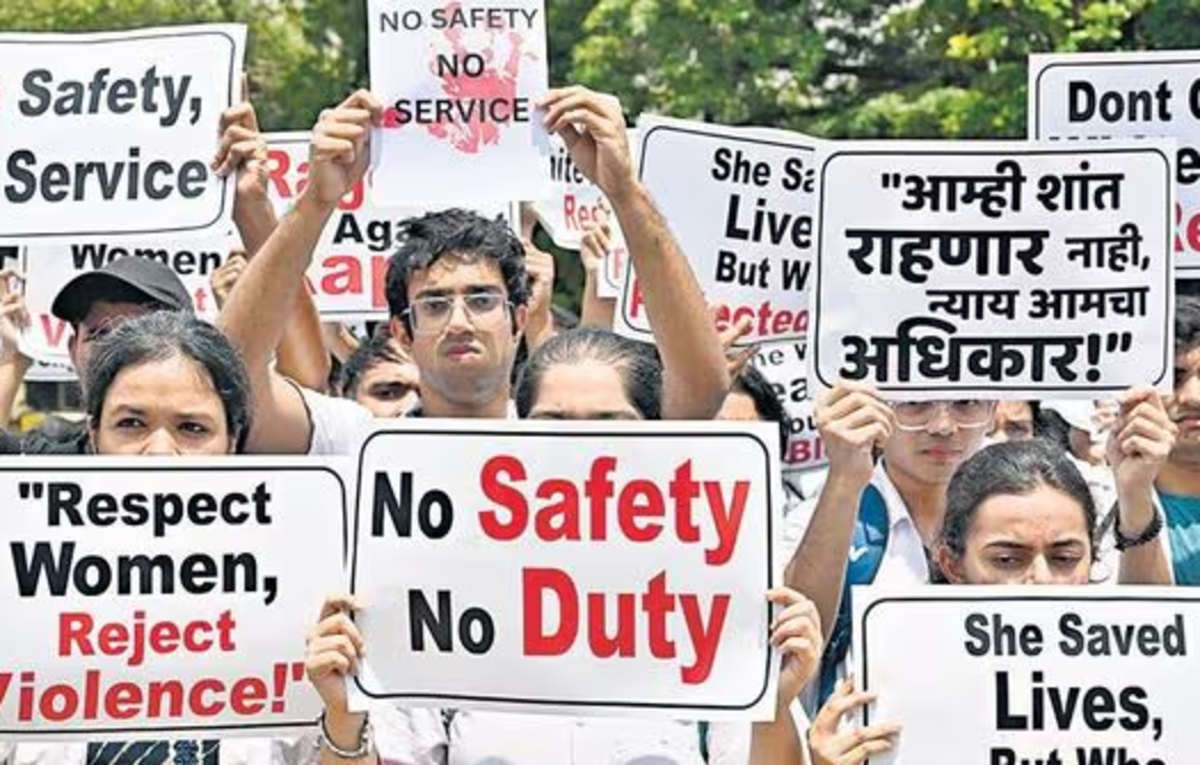 |
|
The tragic death of a trainee doctor in Kolkata has sparked outrage and prompted calls for immediate action to ensure the safety of healthcare professionals across India. Doctors in the national capital gathered at Jantar Mantar to protest the rape and murder, demanding the enactment of a central law to protect healthcare workers. The protest, fueled by the widespread fear and vulnerability felt by female doctors, highlights the urgent need for systemic changes to prevent such horrific incidents from recurring.
The protestors, representing various doctor associations, emphasized the precarious situation faced by female doctors, who now fear for their safety even while performing their duties. They expressed concern that the current lack of adequate protection makes it challenging to encourage young women to pursue a career in medicine. The protest serves as a stark reminder of the persistent threat of violence against women in the workplace, particularly in healthcare settings.
The demand for a Central Healthcare Protection Act reflects the recognition that the safety of healthcare workers cannot be solely addressed at the state level. The act would provide a comprehensive framework for addressing issues like violence, harassment, and threats against medical professionals, creating a more secure environment for them to perform their vital duties. This nationwide protection would be crucial in establishing a culture of respect and safety for all healthcare workers.
While the arrest of a suspect in the Kolkata case provides a glimmer of hope, the protestors remain unsatisfied, demanding a thorough investigation and swift justice for the victim. They also call for the implementation of a national protocol for the safety of healthcare professionals, which should be developed with input from all relevant stakeholders. This protocol would outline clear procedures for preventing and responding to incidents of violence against healthcare workers, ensuring a safe and secure environment for all.
The protest at Jantar Mantar serves as a powerful reminder that the safety of healthcare workers is not just a matter of individual concern but a critical issue impacting the entire healthcare system. The failure to address the concerns of doctors and ensure their safety will have far-reaching consequences for the availability and quality of healthcare services. The government and relevant authorities must take immediate and decisive steps to address the demands of the protesting doctors and ensure a safer and more secure working environment for all healthcare professionals in India.
